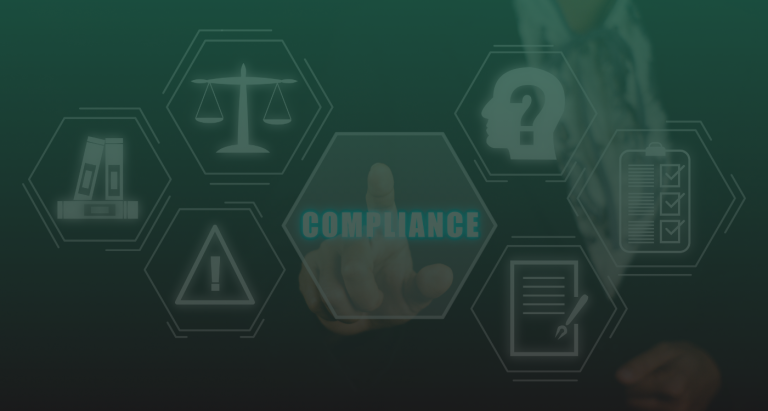
Saudi Arabia is undergoing a rapid transformation toward digital maturity. This shift is also leading to a wave of increasingly strict regulatory frameworks. From cybersecurity mandates to financial and data protection laws, compliance is no longer just a legal formality; it has become a strategic requirement.
As of 2025, Saudi regulators are placing greater emphasis on implementation, proof of compliance, and proactive risk management. For organizations operating in the Kingdom, whether local or international, the ability to navigate this evolving regulatory environment has a direct impact on growth, trust, and operational readiness.
The Key Frameworks Driving Compliance in Saudi Arabia
1. NCA ECC (Essential Cybersecurity Controls)
Saudi Arabia’s National Cybersecurity Authority (NCA) introduced the ECC to standardize cybersecurity across critical infrastructure. The framework outlines 114 controls across five domains: cybersecurity governance, asset management, risk management, people security, and technology protection.
Key 2025 update: Implementation enforcement is tightening. Organizations are expected not only to document compliance but also to demonstrate real-time adherence and control maturity through audits and dashboards.
2. SAMA Cybersecurity Framework
Developed by the Saudi Central Bank (SAMA), this framework applies to all financial institutions under its supervision, including banks, fintech companies, insurance providers, and credit bureaus.
The framework emphasizes:
- Governance and cybersecurity leadership
- Risk management and threat intelligence
- Security monitoring and incident response
SAMA has made it clear: cybersecurity is not optional for regulated entities. Regular self-assessments and audits are part of the mandate.
3. PDPL (Personal Data Protection Law)
The Personal Data Protection Law is Saudi Arabia’s national data privacy regulation. Though implementation began in phases, 2025 marks a period of expected ramp-up in enforcement. The PDPL regulates how personal data is collected, processed, stored, and shared.
Key principles:
- Lawful and limited use of data
- Data subject consent
- Data localization within KSA (unless exemptions apply)
- Rights to access, correction, and deletion
This law affects not only tech and retail businesses, but also healthcare, education, and any organization dealing with personal or sensitive information.
Compliance Challenges Facing Businesses in Saudi Arabia
1. Overlapping Frameworks
Many organizations fall under multiple authorities. For example, a Saudi bank must comply with both the SAMA Cybersecurity Framework and the NCA ECC. Navigating overlapping requirements without duplication or conflict requires a well-mapped, centralized compliance strategy.
2. Manual Tracking and Siloed Compliance Efforts
Spreadsheets, static documents, and scattered evidence make it difficult to track progress, manage risks, or prepare for audits. Manual compliance processes increase the risk of errors, inconsistencies, and missed deadlines.
3. Limited Visibility Across Entities
Organizations with multiple branches, subsidiaries, or third-party service providers often struggle to maintain visibility into compliance status across the ecosystem. This poses risks in audits and real-time incident response.
4. Emerging Enforcement of PDPL
Although the PDPL has been in place, many businesses are still unclear on how and when enforcement will scale. The 2025 horizon marks a turning point where regulators are expected to start applying pressure. Failing to prepare may result in public sanctions or forced operational changes.
5. Compliance Fatigue
The pace of regulatory evolution, combined with a shortage of local compliance talent, leaves many teams overwhelmed. Without automation, reporting and control checks become time-consuming and reactive.
How to Stay Ahead of Saudi Arabia’s 2025 Compliance Demands
Centralize Your Compliance Program
Instead of maintaining separate checklists for each framework, map controls across NCA, SAMA, and PDPL into a unified system. This reduces duplication and highlights gaps proactively.
Automate Evidence Collection and Monitoring
Leverage platforms that automatically track control implementation, flag non-compliance, and generate audit-ready reports. This saves time and reduces human error.
Integrate Compliance into Digital Transformation
Don’t treat compliance as a post-project requirement. Include regulatory mapping, risk reviews, and control implementation from the beginning of new tech rollouts or cloud migrations.
Stay Audit-Ready Year-Round
Instead of scrambling before assessments, aim for continuous compliance. Real-time dashboards and policy versioning help maintain readiness and build trust with regulators.
Build Localized Knowledge and Partnerships
Saudi compliance frameworks are specific and evolving. Work with local experts, legal advisors, and GRC partners who understand the nuances of operating within KSA regulations.
In 2025, compliance has become a business advantage. Whether dealing with NCA ECC, SAMA, or the PDPL, organizations that embrace structured, proactive compliance gain agility, resilience, and credibility in the Saudi market.
From digital banks to energy providers, those who act early and automate smartly will lead the next wave of secure and compliant innovation in the Kingdom.


